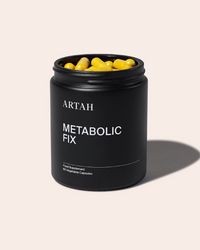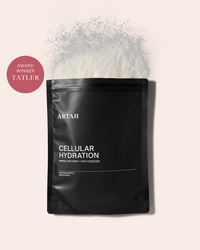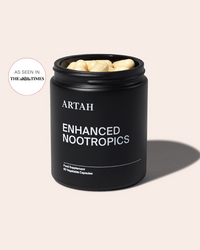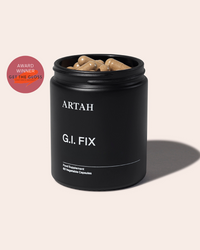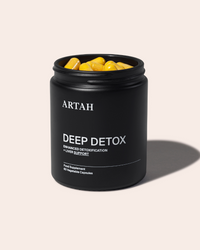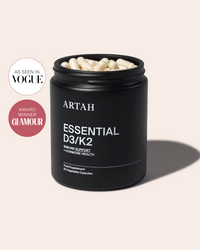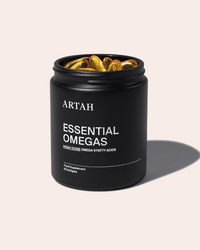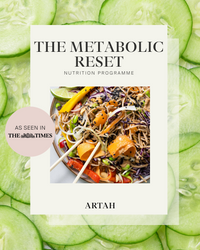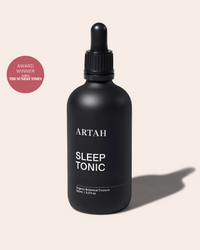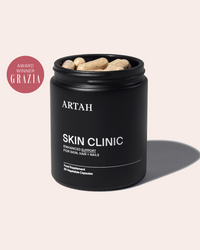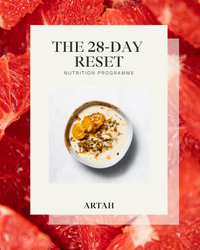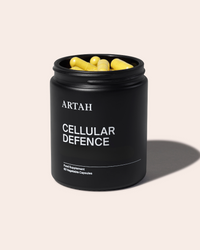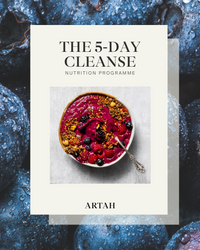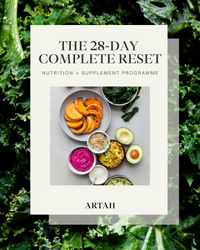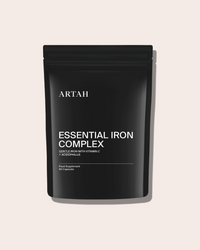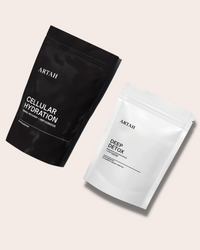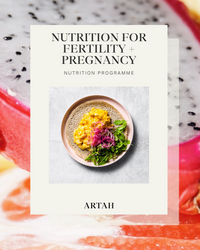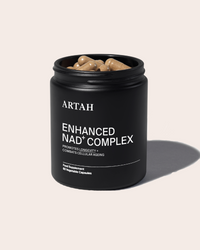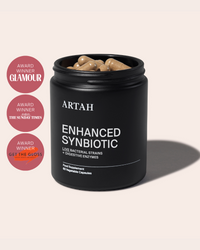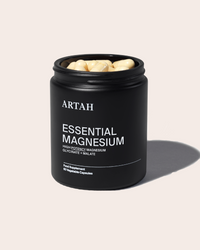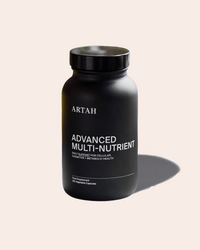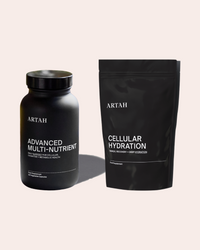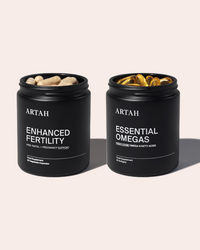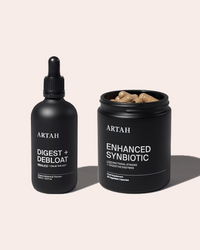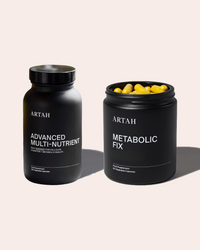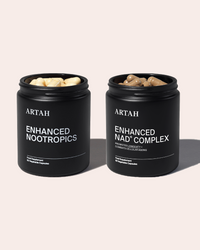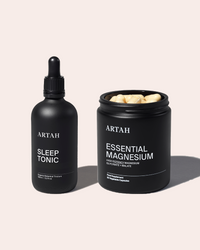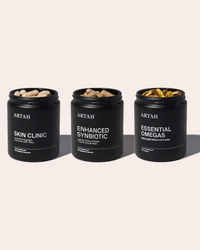4 Surprising Reasons You May Be Anxious
From work stress and family issues to emotional trauma and financial pressure, feeling anxious every now and then is a normal part of life.
But anxiety is not always what it seems. While most of us think anxiety starts from what's going on in our head, it’s intrinsically linked to what we put on our fork. Enter Nutritional Psychiatry - a relatively new field of psychology that looks at the effect food and nutrient status has on our mood. It puts the research of nutrition and mental health into practice by using food and supplements to supply the essential nutrients that nourish, fuel, and protect our brain and subsequently, how we experience our mood. If you often feel anxious, here are 4 things you need to know.
1. You may need to top up your B Vitamins.
Folate is probably the most well-known of the b vitamins because of its link to fertility and pregnancy, but research is stacking up when it comes to the rest of the b-family and their effect on our mood. Vitamins B1, B6, B9 and B12 have all been linked to anxiety, depression, and mood disorders, whilst vitamin B5 is a precursor to adrenal hormones (think cortisol) and essential for stress management. B vitamins are readily available in good quality food, so a diet is rich in both plant and animal sources can help ensure you get a good baseline. If your diet is good but your lifestyle is intense or you still feel like you can improve in the mood department, optimising your vitamin b status through supplements can be a great way to support. Things like oral contraceptives, proton pump inhibitors, anti-histamines, tea, coffee, alcohol, sugar, stress, and exercise all increase the need for b vitamins.
WHAT TO DO: Up your dietary intake by including foods like salmon, leafy greens, eggs, liver, legumes, brown rice, oats, sunflower seeds, trout, chickpeas, papaya, melon, avocado, nuts, mango.
WHAT TO TAKE: Enhanced Nootropics. Loaded with the bioactive forms of the essential B vitamins for psycholgical and cognitive health, this mood-supporting formula also has a lofty dose of Ashwagandha, an extensively studied Ayurvedic herb that has been shown to support emotional wellbeing and our ability to adapt to stress.
2. You may have a food intolerance or sensitivity.
When we think of food intolerances we often think of IBS, bloating, or changes in bowel habits, but digestive issues aren’t the only ways that intolerances present themselves. Anxiety, agitation, depression, brain fog, and lack of concentration can all be manifestations of a food intolerance or sensitivity. For example, research has shown that anxiety, lack of concentration and difficultly managing stress commonly occur in individuals who are sensitive to gluten. Identifying food triggers through an elimination diet can be incredibly helpful for making the food-mood connection.
WHAT TO DO: The 28-Day Reset. Before you start, make note of the nature, frequency and severity of your anxiety so you’re able to track your results. The most important phase of this programme will be the re-introduction phase, which helps you add foods back in one by one so that you can identify symptoms that may occur with each food.
WHAT TO TAKE: Let’s be clear, the most important way to improve symptoms of food intolerance is to avoid the food. But, improving your gut health and microbial diversity can help calm down an overreactive gut and help restore mood. G.I. Fix contains lactobacillus rhamnosus and lactobacillus casei, bacterial strains that have been clinically proven to support a variety of health outcomes.
3. You may be dehydrated.
While dehydration isn’t considered a root cause of anxiety – it CAN cause symptoms of anxiety when it occurs. More importantly, an imbalance of essential electrolytes can affect our mood, cognition, sleep and how we respond to stress. Magnesium and potassium are the hero electrolytes when it comes to the nervous system although the electrolytes all work in concert to keep things running smoothly, and both are chronically lacking in the western diet. In addition, things like stress, coffee, and exercise can all affect this crucial balance.
WHAT TO DO: note your water intake, especially in comparison to your intake of alcohol, caffeine, and sugary drinks, and of course, how often you exercise, which can all affect our electrolyte balance. It's also important to be mindful of how often you are fasting, which can also impact electrolyte balance.
WHAT TO TAKE: Cellular Hydration. This is our go-to for great energy and hydration. It also has maca, also known as Peruvian ginseng, which is traditionally used for hormone balance, emotional wellbeing, athletic recovery and adrenal support.
4. Watch out for reactive hypoglycaemia.
Reactive hypoglycaemia refers to low blood sugar after a meal and usually occurs between 2-4 hours after eating. This crash in blood sugar can cause extreme hunger, weakness, shakiness, sweating, confusion, and you guessed it – anxiety. If you’re someone who often gets ‘hangry’ mid-morning or midafternoon, it’s worth looking at what you’ve eaten the meal before. When we eat meals that are high in starch, sugar, refined carbohydrates, the excess sugar will cause a surge of insulin to be released to clear it from the bloodstream as quickly as possible. This rapid rise and fall in blood glucose can wreak havoc on mood, energy, and leave you feeling anxious (and usually, unsure why).
WHAT TO DO: start by observing your energy levels and mood throughout the day. Keeping a food and mood log can be instrumental in identifying patterns linked to food. If you notice that your mood crashes a few hours after meals, increase good quality protein and fat in your meal and strip out sugar and refined carbohydrates. Even foods we perceive as healthy could be contributing. A classic example of this is porridge. Often accompanied by honey and fruit, a large bowl of porridge – especially on an empty stomach – can cause huge spikes in blood sugar. Try adding skipping the honey and instead opt for nuts, seeds, almond butter, or take a smaller portion and have a boiled egg or protein hit on the side.
WHAT TO TAKE: Metabolic Fix. This supplement contains minerals like Chromium which supports healthy glucose metabolism, alongside other phytonutrients with antioxidant and health supporting properties.





